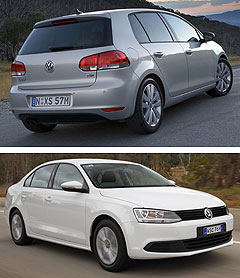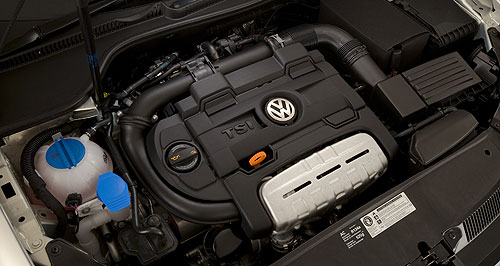Make / Model Search
News - VolkswagenVolkswagen’s two-cylinder TSI engineDe-activate: A graph depicting the fuel-savings offered by the cylinder shut-off system at different vehicle speeds. Cylinder de-activation technology for Volkswagen’s 1.4-litre TSI engine in 20125 Sep 2011 VOLKSWAGEN will offer a fuel-conserving cylinder shut-off system on its 1.4-litre TSI engine from the start of 2012 in what the German giant claims is a world first for this style of engine in large-scale production. The TSI engine currently powers numerous models across the Volkswagen group in Australia, including members of the Golf and Jetta range, and Skoda’s petrol-powered Octavia and Superb. Until now this technology has been reserved for bigger, thirstier engines, such as the 4.0-litre TFSI eight-cylinder that will power the forthcoming Audi S6, S7 and S8 ranges. In the four-cylinder engine, the system will temporarily shut off two of the cylinders when they are under low to medium load, which in the case of the TSI means engine speed of between 1400rpm and 4000rpm and torque use of 25Nm to 75Nm. Volkswagen says this band covers 70 per cent of the driving distance that comprises the EU fuel economy driving cycle. The company also claims that the engine will stay quiet and keep vibration levels to a minimum when running on just two cylinders.  Left: Volkswagen Golf and Jetta. Left: Volkswagen Golf and Jetta.Italian company Fiat has shown in recent times that two cylinders can indeed cut the mustard, after its 875cc TwinAir twin-cylinder petrol engine took out the 2011 International Engine of the Year award in May this year. In fuel economy tests across the EU driving cycle, the TSI engine’s cylinder de-activation is said to have reduced fuel consumption by 0.4 litres per 100km, while the addition of idle-stop technology reduced that figure by a further 0.2L/100km. These savings also mean that the engine, which is available in most of Volkswagen’s small and medium-sized models, will now comply with stringent EU6 emissions requirements. According to the Wolfsburg marque, the greatest benefit comes when driving at constant, moderate speeds. At 50km/h in third or fourth gear, the engine uses almost 1.0L/100km than it would without cylinder de-activation. When the driver presses the accelerator pedal with sufficient force the system is then automatically switched off and cylinders 2 and 3 are reactivated. The technology gets its information from a sensor on the accelerator pedal to detect the mode of driving. If, for example, there is a non-uniform pattern such driving in stop-start traffic or in a sporty fashion on a country road, the cylinder shut-off functionality is automatically suppressed.  Read more |
Click to shareVolkswagen articlesResearch Volkswagen Motor industry news |











Facebook Twitter Instagram